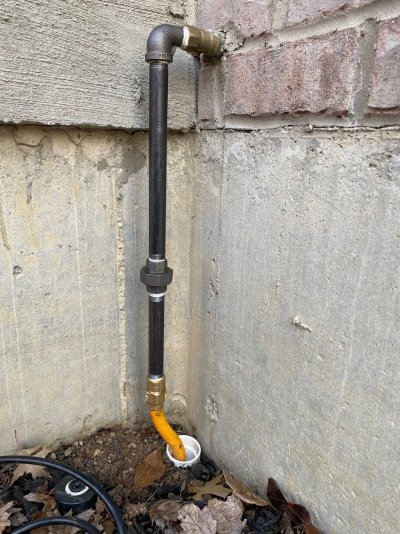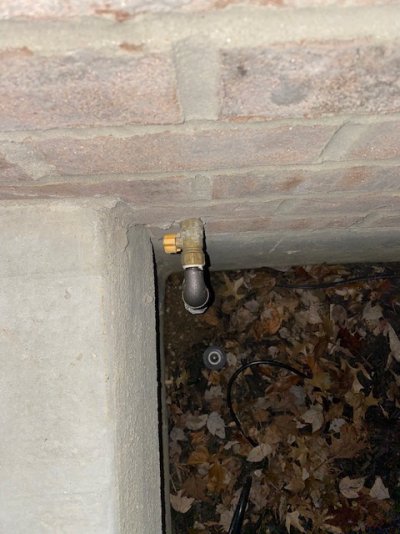corn18
Thinks s/he gets paid by the post
- Joined
- Aug 30, 2015
- Messages
- 1,890
I decided to hook up the outside natural gas line to my firepit. This is a pic of where the 1/2" line comes out of my house and hooks into the 1/2" CSST that runs under my porch to the other side of my patio where the grill is. The underground part is in 1 1/2" PVC that is sealed. I still need to seal where the CSST comes out of the ground.
I tested all the connection with soapy water and got no bubbles. Firepit works great.
Can someone in the know tell me if there are any code issues with this part of the hookup?
Thanks,
Corn
I tested all the connection with soapy water and got no bubbles. Firepit works great.
Can someone in the know tell me if there are any code issues with this part of the hookup?
Thanks,
Corn


